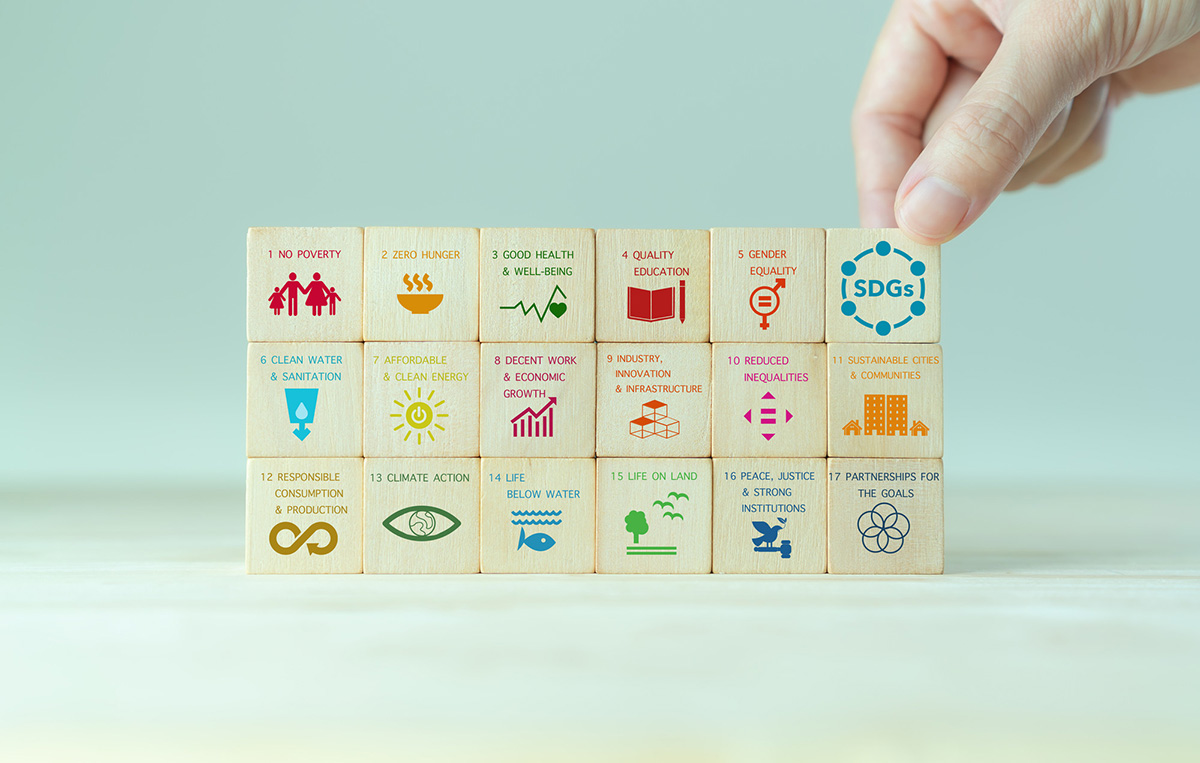GLOBAL
The United Nations Higher Education Sustainability Initiative (HESI) is developing practical guidance for higher education ranking organisations wanting to integrate the delivery of the Sustainable Development Goals (SDGs) into their assessments of universities and colleges.
The initiative has been supported in principle by rankers such as QS and Times Higher Education, The Financial Times and Elsevier.
It was highlighted at the HESI Global Forum staged in New York on 17 July as part of the UN High-Level Political Forum on Sustainable Development 2023, held from 10 to 19 July to support the mid-term review of the implementation of the SDGs and the 2023 SDG Summit in September.
The High-Level Political Forum is the UN’s main platform for the follow-up and review of the 2030 Agenda for Sustainable Development, which targets the delivery of the SDGs. Including inclusive and equitable quality education and lifelong learning is one goal, and higher education is also seen as supporting the achievement of all 17 SDGs.
Guidelines for rankers
Duncan Ross, co-chair of the HESI Ratings, Rankings and Assessments Action Group, told the meeting that his colleagues had been building fresh guidelines for ranking organisations and consumers “so that they best understand how Sustainable Development Goals could be integrated into ratings”.
He said: “We have been collecting data on how the ratings organisations have been doing that and we have been working with a joint task force to understand how we could build out data that are focused on outcomes rather than inputs and outputs.”
The goal is to reward higher education work that really promotes sustainability-focused change, rather than “the way the world is, or reflecting what you’re doing in the hope that it will make things better”.
The HESI group will also be working with bibliometric organisations, regarding the publication of research that is focused on topics linked to the SDGs. “One of the ways that we assess research is we look at how often researchers are cited, how often it is used in practice.”
Ross said HESI was also planning to work with higher education accrediting organisations that assess institutions and courses. The idea is to encourage universities and colleges to embed sustainability into course curricula, by making sustainability teaching and learning an accreditation requirement.
HESI links and activities
HESI links UN bodies, including UNESCO, and the Sulitest Association, a non-profit organisation and online platform seeking universal sustainability literacy. HESI has created action groups that are charged with building sustainable knowledge and skills, to boost equitable and long-lasting development worldwide.
One HESI action group is Education for Green Jobs, which has been promoting teaching of sustainability-focused skills, to help promote SDG delivery.
Co-chair Debra Rowe, who is also president of the US Partnership for Education for Sustainable Development, told the Forum: “In terms of green jobs, the numbers are exploding, and we recognise the need to accelerate the solutions.”
Rowe said the group was working with networks of universities and employers, sharing sustainability skill creation solutions in more than 100 countries, with more than 4,000 participants, staging international summits (which are recorded for reference) and developing a toolkit on building higher education that imparts practical sustainability-focused skills.
One benefit of this work is integrating higher education sustainability policy, said Rowe: “Too many times people stay in their own silos in different agencies in the government and do not talk to each other, and you have fragmented approaches.” Future initiatives include encouraging universities to develop energy programmes, to promote renewable energy skills – a key shortage restricting the roll-out of energy and climate SDGs.
The SDG Publishers Compact
The SDG Publishers Compact was launched by the UN in collaboration with the International Publishers Association in 2020 and is one of HESI’s action groups.
Chirag Jay Patel, head of sales (Americas) at India-based AI-oriented research company Cactus Communications, said this HESI action group had been encouraging academic publishers to recognise and integrate SDGs within their work.
The group has facilitated academic publishers linking with more than 150 organisations – including academic publishing industry associations such as STM, and the Association of Learned and Professional Society Publishers – in promoting the SDGs among editors, publishers and authors, for instance through good practice in keywording and tagging content, and in archiving.
The goal, said Patel, was to make sure that SDG research and publication is organised properly, is discoverable “and that everyone in the process is following basic guidelines”. In the coming year, the group plans to stage more events and develop more alliances, linking publishing with academia and funding organisations to promote the SDGs within their work.
Aurélien Decamps, managing director and co-founder of Sulitest, stressed how his organisation launched in March 2023 a new standard of sustainability knowledge, called TASK.
A scientifically based assessment that grants an international certificate on sustainability knowledge, TASK has had to be comprehensive, as “there’s no one way of approaching sustainability”, said Decamps.
The system is providing reliable data to and from universities and can also issue a certificate for individuals, he added, with early adopter institutions, or ‘change leaders’, encouraging the integration of sustainability across all programmes, as well as in sustainability courses themselves. Sulitest plans to engage with faculty next year and build a community of practice that will have a “systemic impact on education”, he told the forum.
University sustainability reviews
Jayashri Wyatt, chief of the education outreach section in the Outreach Division of the UN Department of Global Communications, spoke about the UN academic impact and how voluntary university reviews of their sustainability performance has promoted the SDGs.
She said her colleagues have undertaken desk reviews of the assessments and are working to create indicators and a road map for university sustainability reviews. An example is the University of California, Davis’ first SDG voluntary university review, produced in September 2021.
According to Wyatt, SDG activation in higher education is “totally uneven”. She encourages universities to work with all levels of government to undertake sustainability work.
“Engagement at the highest level is totally important,” said. If universities can “solve problems in real time working with local governments”, that can be a better tactic than waiting for a response from national government: “Sometimes we don’t have time for that.”
The HESI Partner Programme
Finally, Ola Goransson – partnerships coordinator, outreach and communication, in the sustainable development division at the UN Department of Economic and Social Affairs – stressed progress made in the new HESI Partner Programme, launched in 2022.
It aims to connect universities, networks and student organisations, sharing experience and knowledge to help integrate SDGs into curricula, research, innovation and campus actions.
The first step, said Goransson, was “to understand what resources are out there”, and then what “knowledge people are looking to share and what knowledge they are seeking”.
Moderator Jean-Christophe Carteron, president of Sulitest and HESI co-chair, said that by bringing academic communities together “we want to instill the kind of dynamic to accelerate change” regarding higher education and the SDGs.
Credit:Source link



